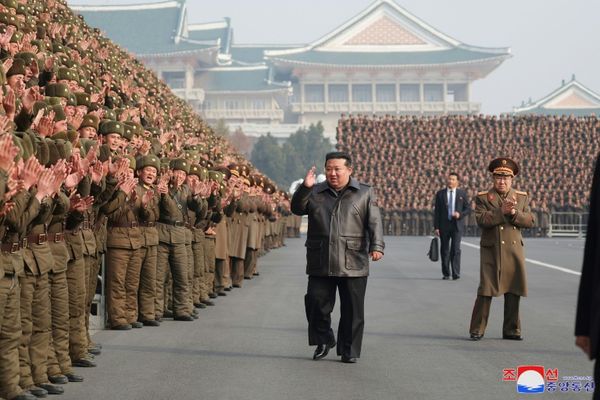After a break of nearly two weeks, Elon Musk is back on Twitter, his favorite communication channel.
The CEO of Tesla (TSLA), who has also become the most influential boss in the world, has resumed his habits. He uses the microblogging website as a platform to shed light on subjects close to his heart or to express his moods.
He also has kept his abrasive style, which tolerates very little middle ground or gray areas. The richest man in the world has also kept his habit of commenting on the posts of an account on events, characters or historical places. Recently, a post from this Twitter account evoked the tragic life of the children of Russian despot Joseph Stalin who ruled the Soviet Union for 30 years from 1922 until his death in 1953. This did not fail to attract the attention of the serial entrepreneur.
"The tragic lives of Joseph Stalin's children," account History Defined posted on July 4 with a link to a short article summarizing the lives of the Stalin children.
"While bleak posts maybe generate more clicks, more happier moments in history would be nice," the billionaire commented on July 5.
'He Was Fun at Parties'
A user then commented on his post by posting a modified image of a famous painting (Napoleon on the field of Wagram, by Joseph Chabord) showing Napoleon on a horse with a plastic cup, colored glasses, and a balloon in one hand. The title of the painting has also been retouched and is now inscribed: "NAPOLEON BORNTOPARTY."
Musk didn't hesitate to respond.
"His success was in fact due, in part, because he was super fun at parties, spoke and wrote incredibly well!" the billionaire said.
It's unclear whether Musk is talking about Napoleon Bonaparte or Napoleon III. The reign of the latter which began well after that of the first was known for its sumptuous and decadent parties.
But the post the mogul is commenting clearly evokes Napoleon Bonaparte.
The tech mogul didn't expand on his opinion of Napoleon Bonaparte. But it's a safe bet that his position will spark debate on the Emperor of France whose reign arouses many controversies. For some he was a visionary genius, a brilliant strategist but for his critics Napoleon was a tyrant, a misogynist.
He Reestablished Slavery
Napoleon was born in 1769 in Corsica, southern France. He was a gifted child who had a meteoric rise in the French army. A key man in the coup of "18 Brumaire" which marked, on 9 November 1799, the end of the French Revolution, he won the day by consolidating power as First Consul "for life", then crowning himself Emperor of the French, on December 2, 1804, at 35.
Napoleon then brought France to heel and established an authoritarian state, favoring equality over freedom. He wanted to control everything, and dId not delegate. Very concerned about his image, with a paranoid tendency, he scripted his own legend.
His military campaigns led to the deaths of hundreds of thousands of people during his extensive wars. Among the other negatives, detractors point to the fact that he imposed the patriarchal model and affirmed the legal incapacity of married women.
Less frequently noted, but especially tragic, Napoleon reinstated slavery in French colonies just a few years after it was abolished during the revolution. It was not entirely ended until 1848.
Napoleon is seen as the father of a modern France that he reorganized after the Revolution.
He stubbornly refused to sign peace with allied powers and after being imprisoned, managed an escape final return in 1815, which only ended with his defeat at the battle of Waterloo.
Napoleon III was the emperor of The French between the years 1852-1870. His regime, called the Second Empire, was linked to greed, sex, and sumptuousness. It was marked with the decadent and superficial seal of the “imperial feast”. Against a backdrop of social upheaval, this period of prosperity was a time of economic splendor and euphoria, of ostentation and multiple celebrations.
For the French history books, it was a time purely of amusements, scandals and vices.







